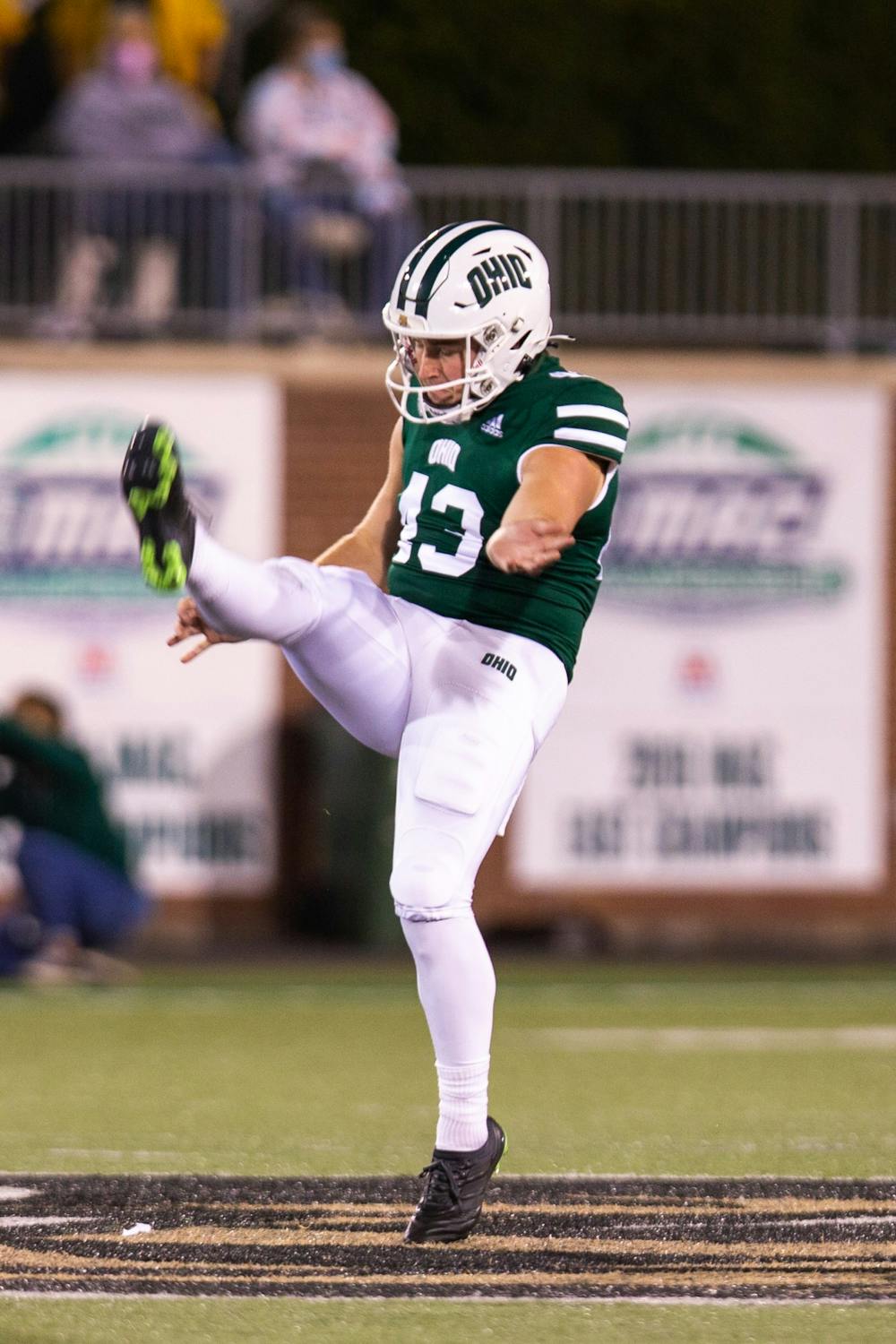Jack Wilson didn’t think he’d be nervous, but nothing could have prepared him for the crowd at Peden Stadium.
23,904 fans filled the seats for Ohio’s 2021 season opener against Syracuse. It was the first time Wilson had ever seen an actual crowd at an Ohio game after his first season in 2020 had limited entrance due to COVID-19 regulations. Having never played in front of such a large group of fans before, Wilson was stunned.
“Unless you’re at a professional level back home,” Wilson said. “You never experience crowds like you would in a college environment, and it’s breathtaking. It’s very professional.”
For Wilson, playing in front of such a large group of people was another one of the adjustments he made transitioning from Australian rules football to American college football.
Like many children in Australia, Wilson grew up playing Australian rules football at local clubs on weekends. He stuck with the sport throughout his school years, but lost the spark for it as he got older. He didn’t fall out of love with it, but he felt that he was at a level that he couldn’t surpass. It was boring, and he wanted a change.
ProKick Australia gave him that opportunity. The program was created in 2007 as a way to help train and transition Australian athletes to American football at both the collegiate and professional levels. When Wilson heard of ProKick Australia from a friend, he called them up.
“They gave me all the information I needed,” Wilson said. “And I was like, ‘Yeah, this is it. This is what I want to do.’”
ProKick eventually led Wilson to commit to Ohio in 2019, and he made his American collegiate debut in 2020 as a punter. Even though he’d be kicking a ball like he was used to, Wilson was jarred by a laundry list of new experiences. It was his first time overseas, and he had to become more independent in order to adjust to life in a different country without the people closest to him, such as his parents.
American football was almost an entirely different game for Wilson. Australian rules football doesn’t have timeouts, and the only time a coach can directly instruct the entire team is during quarter and halftime breaks. Due to this, Wilson was used to more static game plans. In the U.S., he needed to adapt to plans that changed on a play-by-play basis.
However, it was an easy transition technique-wise. Wilson played full-forward in Australia, a predominantly offensive position that focuses on kicking. The balls in American and Australian rules football are roughly the same shape, so Wilson was able to adjust easily. What did change, however, was his role in the game. Wilson is no longer tasked with regularly scoring points anymore. Instead, his job is to flip the field.
“My ideology’s changed,” Wilson said. “I no longer have the ability to just run out there, make something happen. I have to play my role in the bigger scheme of things.”
The new experiences weren’t limited to being just on the field. They also took place off the field. While playing with local clubs in Australia, Wilson usually never traveled longer than an hour and a half for a game. In less than two seasons with the Bobcats, he has already traveled to schools like Louisiana, which are several hours away by flight.
“It was a very big adjustment,” Wilson said. “I’ve never been in an atmosphere like it, having to take a whole day to travel and then play a game the following day. I’ve never experienced anything like that, and it’s been very eye-opening.”
Wilson has been overseas for a year and a half now, and he’s become comfortable with his surroundings. He’s had more time to become used to the new game he plays and his role within it. Even then, he thinks there’s more for him to learn.
“You can go your whole lifetime playing football and still not know everything about American football,” Wilson said.






